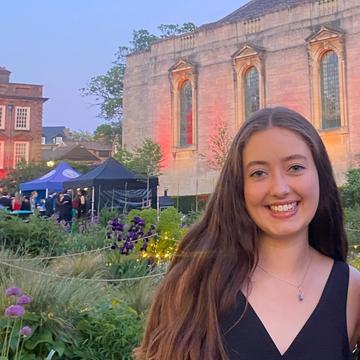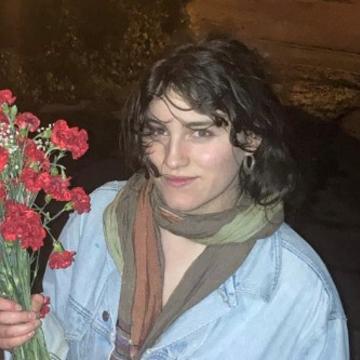We would like to congratulate the winners of the Kafka Undergraduate Essay Prize 2025! This year the theme was ‘Identities’ and the winning essays were:
First Prize:
‘Non-human identities. Discuss the portrayal of animals and/or other non-human agents in Kafka's writings’ by Katie Robinson (University of Oxford)
Joint Second Prize:
‘Non-human identities. Discuss the portrayal of animals and/or other non-human agents in Kafka's writings’ by Josephine Kalwij (King's College London)
‘Ossified Identities: The Bureaucratic Control of the Self in the novels of Franz Kafka and Charlotte Delbo’s Holocaust Testimony’ by Anna Tonge (University of Cambridge).
You can read the winning essays (from this year and last year) here.
About the Competition
The competition is open to undergraduates who are currently enrolled in a course of German (single honours or with another subject) at a university in the UK. All entries are reviewed anonymously by the team of judges at the Oxford Kafka Research Centre.
The winners receive a monetary prize and are invited to a prize-giving ceremony, which this year takes place in Oxford on 26 June.
The Oxford Kafka Research Centre is grateful to Nigel Jones for generously funding this prize.
About the Winners

Katie Robinson – First Prize
Katie Robinson has just finished her undergraduate degree in German and Spanish at Oxford. She began studying German at University through the ab initio programme, where she was first introduced to the world of German canonical writers. What stood out to Katie most about Kafka was the emotional intensity and psychological complexity of his work. She is particularly drawn to how his animal characters grapple with alienation and inner conflict, expressing something universally human. Katie’s interest in modernist fiction extends to post-war female authors including Ingeborg Bachmann and Christa Wolf, whose subjective explorations of individual and collective identity continue to resonate strongly within today’s political climate.

Josephine Kalwij – Joint Second Prize
Currently a student at King’s College London, Josephine has just finished her first year studying German and Philosophy. Her interest in the German language stems from her Swiss-German roots, through which she has interacted with German in both dialectal, non-written forms of cultural identification, as well as a more structured approach to high German through her degree programme. She is interested in how it can stretch the limits of normalcy and the expected – language has a unique ability to both familiarise and alienate simultaneously. Josephine enjoys reading German works by writers whose mother tongue is not German, but also writers for whom German represents a misconstrued identity. Kafka’s writing adopts and adapts to the German language, his mother tongue, but also the language that stretched over cultural and national borders, standardising dialectal forms of expression.
Anna Tonge - Joint Second Prize
Anna is currently reading Law at Emmanuel College, University of Cambridge. She is a Columnist for the Cambridge Language Collective and Edits the Interviews Section for the Cambridge Student.
Her love of Kafka arises from his position at the crossroads of language, identity, and geography. She finds captivating his fusion of the absurd with the mundane, grounding dreamlike narratives in Prague’s shadowy, labyrinthine streets that echo his themes of alienation and existential uncertainty. Kafka’s tension between rootedness and exile, and between linguistic inheritance and estrangement, resonates with Anna’s broader interests in diasporic and liminal identities.